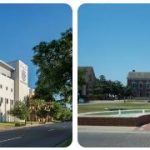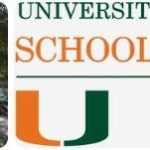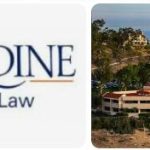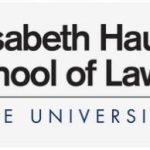Samford University Cumberland School of Law was established in 1847, making it the oldest law school in the state of Alabama. It is located in Birmingham, Alabama, and is part of Samford University. The school was founded by a group of prominent lawyers and judges who wanted to provide a quality legal education for students in the state. Since its founding, Cumberland School of Law has established itself as one of the top law schools in the nation. The school offers an array of degree programs, including a Juris Doctor degree program that emphasizes experiential learning to prepare students for practice after graduation. Students are also able to take classes from nationally recognized faculty members who have made significant contributions to the legal field. In addition, the school has several clinical programs that allow students to gain real-world experience while still in school. The school also hosts numerous events throughout the year such as lectures and symposiums on current legal issues and trends. Cumberland School of Law is dedicated to providing its students with an excellent education that prepares them for success within their chosen career paths.
Samford University Cumberland School of Law is located in the state of Alabama. As one of the leading law programs, Samford University Cumberland School of Law has a high average LSAT score of 153-157 when recruiting new students. As a return, the median starting salary for law graduates reaches $65,000 per year. See the following table for detailed admissions information and career profiles of Samford University Cumberland School of Law.
Admissions: Samford University (Cumberland)
Samford University Cumberland School of Law is a private law school located in Birmingham, Alabama. It is one of the oldest law schools in the United States and has produced many prominent attorneys and judges. The school offers three distinct programs: a Juris Doctor (JD) program, an LLM program for foreign-trained lawyers, and an online program for working professionals. In terms of admissions statistics, Samford Cumberland School of Law accepts approximately 500 students each year. The average GPA for incoming students is 3.6 and the average LSAT score is 153. The student body is diverse, with students coming from all over the United States and many foreign countries. The school also offers generous financial aid packages to help cover tuition costs. In addition to traditional scholarships, the school also offers merit-based awards to those who demonstrate outstanding academic achievement or have served their community in some capacity.
| Fall 2019 Admissions and Enrollment Statistics | |
|---|---|
| Total number of full- and part-time applicants | 980 |
| Total number of full- and part-time acceptances | 506 |
| Overall acceptance rate | 51.6% |
| Total number of full- and part-time first-year students enrolled | 178 |
| Number of full-time program applicants | 980 |
| Number of full-time program acceptances | 506 |
| Full-time acceptance rate | 51.6% |
| Number of first-year full-time students enrolled | 178 |
| Number of part-time program applicants | 0 |
| Number of part-time program acceptances | 0 |
| Part-time acceptance rate | N/A |
| Number of first-year part-time students enrolled | 0 |
| Fall 2019 GPA and LSAT Scores | |
| 25th-75th percentile GPA scores for all students | 3.01-3.59 |
| 25th-75th percentile LSAT scores for all students | 153-157 |
| 25th-75th percentile undergraduate GPA for full-time students | 3.01-3.59 |
| 25th-75th percentile LSAT scores for full-time students | 153-157 |
| 25th-75th percentile undergraduate GPA for part-time students | N/A |
| 25th-75th percentile LSAT scores for part-time students | N/A |
Careers: Samford University (Cumberland)
| Bar Statistics (Winter and Summer 2018 administrations) | |
|---|---|
| State where the greatest number of first-time test takers took the bar | AL |
| School’s bar passage rate for first-time test takers | 95.7% |
| Statewide bar passage rate for first-time test takers | 79.0% |
| Class of 2018 Graduates | |
| Total graduates | 159 |
| Graduates employed at graduation | N/A |
| Graduates known to be employed nine months after graduation | 93.7% |
| Starting Salaries of 2018 Graduates Employed Full-time | |
| 25th percentile private sector starting salary | $55,000 |
| Median private sector starting salary | $65,000 |
| 75th percentile private sector starting salary | $95,000 |
| Percent in the private sector who reported salary information | 58% |
| Median public service starting salary | $46,000 |
| Areas of Legal Practice (Class of 2018) | |
| Percent employed in academia | 2.0% |
| Percent employed in business and industry | 11.0% |
| Percent employed in government | 11.0% |
| Percent employed in all judicial clerkships | 3.0% |
| Percent employed in law firms | 73.0% |
| Percent employed in public interest | 0.0% |
| Percent employed in an unknown field | 0.0% |
| Percent employed in a judicial clerkship by an Article III federal judge | 0.0% |
| 2018 Graduates Employment Location | |
| Graduates employed in-state | 58% |
| Graduates employed in foreign countries | 1% |
| Number of states where graduates are employed | 17 |
| New England (CT, ME, MA, NH, RI, VT) | 0.0% |
| Middle Atlantic (NY, NJ, PA) | 2.0% |
| East North Central (IL, IN, MI, OH, WI) | 2.0% |
| West North Central (IA, KS, MN, MO, NE, ND, SD) | 0.0% |
| South Atlantic (DE, DC, FL, GA, MD, NC, SC, VA, WV) | 24.0% |
| East South Central (AL, KY, MS, TN) | 66.0% |
| West South Central (AR, LA, OK, TX) | 2.0% |
| Pacific (AK, CA, HI, OR, WA) | 1.0% |
| Mountain (AZ, CO, ID, MT, NV, NM, UT, WY) | 2.0% |
| Employment location unknown | 0.0% |
| Career Services | |
| (Data appear as originally submitted by this school) | |
| Career services operations | STAFF: Director, Associate Director, and Program Support Specialist SERVICES: Career Counseling, Fall & Spring On-Campus Interview Program, Practice Interviews, Career Skills Training, Job Fairs, Online Job Postings for students and alumni RESOURCES: Computer Lab, Library/Resource Room with fax/copy machine availability, Interview Suites, and reciprocity with ABA law schools. |
| Job Type | |
| Bar admission required or anticipated (e.g., attorney and corporate counsel positions, law clerks, judicial clerks) | 85.0% |
| J.D. preferred, law degree enhances position (e.g., corporate contracts administrator, alternative dispute resolution specialist, government regulatory analyst, FBI special agent) | 8.0% |
| Professional/other (jobs that require professional skills or training but for which a J.D. is neither preferred nor particularly applicable; e.g., accountant, teacher, business manager, nurse) | 5.0% |
| Nonprofessional/other (job that does not require any professional skills or training or is taken on a temporary basis and not viewed as part of a career path) | 3.0% |









